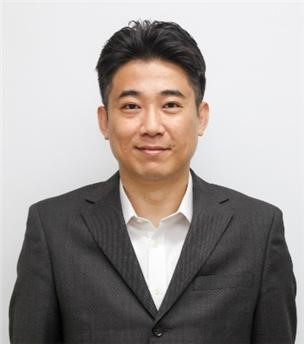Professor Taejun Ha and His Research Team was Interviewed by Advanced Science News
- admin
- 2024-11-29
- 1252
· Prof. Taejun Ha (Department of Electronic Materials Engineering) and His Research Team was Interviewed by Advanced Science News about their Sustainable Energy Harvesting Technology Using Biowaste-Based Triboelectric Nanogenerators
205 views | Created 2024.11.13 | Modified 2024.11.13 | Public
Relations Team
·
Professor Taejun Ha (Department of Electronic Materials Engineering)
and His Research Team was Interviewed by Advanced Science News
About their Sustainable Energy Harvesting Technology Using
Biowaste-Based Triboelectric Nanogenerators
- Based on the analysis of 252 studies on
biowaste-based triboelectric nanogenerators published in the journal Advanced
Science (IF: 14.3, JCR ranking: 93.5%), the research presents directions for
improving energy conversion efficiency and explores the potential for
application in next-generation bioelectronics -

<Professor Taejun Ha,
Department of Electronic Materials Engineering>
The research lab of Professor Taejun Ha from the
Department of Electronic Materials Engineering at our university conducted an
interview with Advanced Science News regarding next-generation energy
harvesting technology based on biowaste materials. This is because the paper
titled "Biowaste-Derived Triboelectric Nanogenerators for Emerging
Bioelectronics," published in Advanced Science (IF: 14.3, JCR ranking:
93.5%)―one of the top international journals in the field of materials science
by Wiley―has garnered significant attention.
(Reference:
https://www.advancedsciencenews.com/biowaste-finds-new-life-in-energy-harvesting-devices/)
Triboelectric nanogenerators (TENGs), which can generate
power without an external power source through triboelectric effects, have
significant potential due to their applicability in small mobile electronic
devices and other applications. However, conventional materials used as
triboelectric layers in TENGs are typically difficult to biodegrade and can
release toxic substances during decomposition, contributing to electronic
waste. As a result, there is growing global interest in developing eco-friendly
energy harvesting technologies using environmentally sustainable and
biodegradable materials.
The interview emphasized that biowaste, as an effective triboelectric
material, not only enhances mechanical stability through hydrogen bonding but
also enables the realization of eco-friendly, biodegradable triboelectric
nanogenerators. The interview acknowledged that, compared to TENGs using
conventional materials, biowaste-based TENGs still face challenges such as
relatively low output voltage, durability issues, and shorter lifespans.
However, it was explained that these challenges have the potential to be
resolved through technological advancements. Additionally, the high efficiency
of energy conversion relative to manufacturing costs positions biowaste-based
TENGs as a promising next-generation sustainable energy harvesting technology. It
was further noted that the material properties of eco-friendly, biodegradable
biowaste significantly enhance its potential for application in next-generation
bioelectronics, creating substantial synergy.
Professor Taejun Ha's research team is actively conducting
extensive research not only on next-generation electronic devices based on
advanced materials but also on energy harvesting technologies. Their
accomplishments include publishing over 40 SCI journal papers including
publications in top-tier international journals such as ACS Nano and Energy
& Environmental Materials, along with securing more than 25 international
and domestic patents in advanced functional materials and energy devices.

Biowaste finds new life in energy-harvesting devices by Jenna Flogeras | Nov 6, 2024